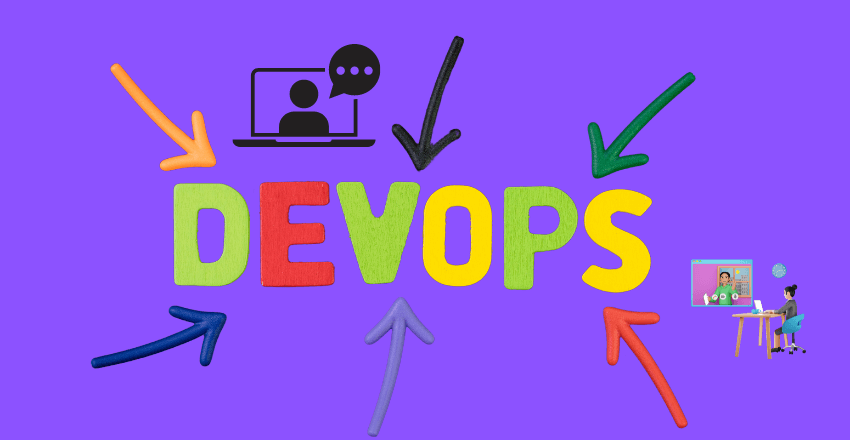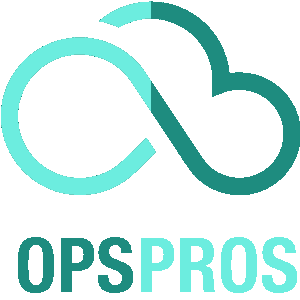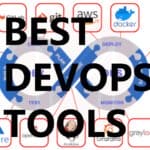 Are you an aspiring IT professional seeking to enhance your skills and advance your career? If so, DevOps training and placement may be the ideal solution for you. DevOps education equips you with the knowledge and expertise to master essential principles and practices, while training programs provide hands-on experience to apply these concepts in real-world scenarios. Moreover, job placement assistance offers a chance to secure career opportunities in the DevOps field.
Are you an aspiring IT professional seeking to enhance your skills and advance your career? If so, DevOps training and placement may be the ideal solution for you. DevOps education equips you with the knowledge and expertise to master essential principles and practices, while training programs provide hands-on experience to apply these concepts in real-world scenarios. Moreover, job placement assistance offers a chance to secure career opportunities in the DevOps field.
So, if you want to increase your job prospects and earning potential, while gaining practical knowledge, consider enrolling in a comprehensive DevOps training program. This article will provide guidance on how to choose the right training program, the benefits of gaining hands-on experience, and the significance of certification. We’ll also share success stories of individuals who have undergone DevOps training and placement and the impact of training on their professional journey.
Introduction to DevOps
DevOps is a set of practices that combine software development (Dev) and information technology operations (Ops) to improve the delivery and quality of software products. In essence, DevOps aims to foster collaboration between development and IT teams to enable continuous delivery and deployment of software.
In recent years, DevOps has become increasingly popular, with many companies adopting this approach to streamline their software development process. As a result, there is a growing demand for IT professionals with DevOps expertise.
To become proficient in DevOps, specialized education and training programs are necessary. These programs are designed to provide students with the knowledge and skills needed to successfully implement DevOps principles and practices in real-world situations.
The Benefits of DevOps Training
DevOps training programs offer numerous advantages for IT professionals seeking to enhance their skillset and advance in their careers. By enrolling in a comprehensive DevOps training program, individuals can acquire practical knowledge of DevOps principles, tools, and practices, and gain hands-on experience through real-world projects.
Training programs provide focused education on the latest tools and technologies used in DevOps, such as continuous integration and delivery, infrastructure as code, and containerization. Moreover, DevOps training programs offer significant benefits, including:
- In-demand skills: DevOps professionals are in high demand due to the increasing adoption of cloud computing and digital transformation initiatives by organizations worldwide. By undergoing DevOps training, IT professionals can acquire specialized skills that are in high demand and open up new career opportunities.
- Increased job prospects: Many training programs offer job placement assistance, providing access to job leads and career guidance services to help individuals secure a position in the DevOps field.
- Higher earning potential: With the demand for skilled DevOps professionals on the rise, salaries for DevOps roles are among the highest in the IT industry.
DevOps training programs also provide ample opportunities for hands-on experience and practical learning. By working on real-world projects and case studies, individuals can apply their knowledge and skills to solve real-world problems and gain valuable experience.
Overall, DevOps training programs are an excellent way for IT professionals to stay ahead of the curve and advance their careers in a rapidly evolving industry.
Choosing the Right DevOps Training Program
Choosing the right DevOps training program is crucial in gaining the required skills and knowledge to succeed in the rapidly evolving IT industry. With numerous options available, it can be overwhelming to select a program that meets your needs and objectives. Consider the following factors when choosing a DevOps training program:
- Curriculum: Look for a program that covers a comprehensive curriculum, including popular DevOps tools, such as Jenkins, Docker, and Ansible. The course should also focus on the principles and practices of DevOps and their implementation in real-world scenarios.
- Certifications offered: Choose a program that offers industry-recognized certifications, such as AWS Certified DevOps Engineer and Certified Kubernetes Administrator. Obtaining these certifications demonstrates your expertise and increases your marketability to potential employers.
- Trainer’s expertise: Ensure the trainers are experienced professionals with substantial expertise in DevOps. They should have a deep understanding of the latest industry trends and be equipped to provide practical insights and guidance to students.
- Industry recognition: Research if the program has received recognition from prominent industry organizations and leading tech firms. A program that has received positive feedback and recognition from industry leaders is a good choice.
Choosing a DevOps training program that aligns with your interests, career goals and learning style is a significant step towards a successful IT career. Consider the above factors and choose a program that offers comprehensive learning, hands-on experience and job placement assistance.
Hands-On Experience in DevOps Training
One of the most crucial aspects of DevOps training programs is the emphasis on hands-on experience. Unlike theoretical courses that teach only concepts and principles, DevOps training programs are designed to provide practical knowledge and skills through simulated environments and real-world projects. This approach enables aspiring professionals to gain in-depth experience, learn through trial and error, and prepare for real-world scenarios.
DevOps training programs typically offer lab exercises and simulations, allowing trainees to test their skills and experiment with different scenarios. This practical training is especially valuable for IT professionals who want to enhance their skills or switch careers, as it helps to bridge the gap between theory and application.
The Effectiveness of Experiential Learning
Hands-on experience is a powerful tool for learning, as it facilitates active participation and engagement. It allows trainees to apply what they have learned in a supportive environment, receive feedback, and adjust their approach accordingly. This approach is known as experiential learning and has been proven to be an effective way of acquiring knowledge and skills.
Through experiential learning, trainees develop problem-solving skills, learn to work effectively in teams, and gain confidence in their abilities. These skills are essential in the DevOps field, where collaboration, communication, and adaptability are critical.
| Benefits of Hands-On Experience |
|---|
| • Acquiring practical skills and knowledge |
| • Gaining confidence in one’s abilities |
| • Developing problem-solving skills |
| • Learning to work effectively in teams |
| • Preparing for real-world scenarios |
When choosing a DevOps training program, look for one that emphasizes hands-on experience and provides ample opportunities for practical training. This approach will help you gain the skills and expertise needed to succeed in the DevOps field and prepare you for professional growth and advancement.
Job Placement Assistance in DevOps
One of the most significant benefits of DevOps training programs is the job placement assistance they offer. Aspiring IT professionals can gain access to exclusive job openings and networking opportunities through these programs.
Career guidance and resume-building workshops can help participants highlight their strengths and skills to potential employers. Interview preparation and mock interviews can also provide insight into what to expect during the hiring process.
Many DevOps training programs also offer networking opportunities with industry professionals, giving participants a chance to make connections and establish relationships. These connections can often lead to job openings and referrals in the field.
By taking advantage of job placement assistance provided by DevOps training programs, participants can significantly increase their chances of securing a job in the field after completing their training.
Career Opportunities in DevOps
DevOps is a rapidly-growing field with abundant job opportunities for IT professionals seeking to enhance their careers. By undergoing DevOps training and placement, individuals can prepare themselves for lucrative job roles that require a blend of technical and managerial expertise.
A few of the popular job roles in DevOps include:
- DevOps Engineer
- System Administrator
- Release Manager
- Cloud Architect
As businesses increasingly adopt DevOps practices, there is a high demand for skilled professionals who can manage complex systems and ensure efficient delivery of software products. By mastering DevOps principles and practices, individuals can prepare themselves for diverse career opportunities and attractive remuneration.
Moreover, DevOps training programs typically offer job placement assistance to their students. This means that individuals who undergo DevOps training can secure desirable job roles and elevate their careers to the next level.
To sum up, DevOps training, coupled with relevant job placement assistance, can open up a world of career opportunities for IT professionals. With the right education and hands-on experience, individuals can prepare themselves for a fulfilling and lucrative career in DevOps.
The Significance of DevOps Certification
If you’re looking to validate your DevOps expertise and enhance your job prospects, obtaining a DevOps certification is key. Certification helps you demonstrate to potential employers that you have mastered DevOps principles and practices, and are capable of leading DevOps initiatives within an organization.
Popular DevOps certifications include the AWS Certified DevOps Engineer and Docker Certified Associate, among others. These certifications require you to demonstrate your knowledge and proficiency in specific DevOps tools and platforms, and may involve passing a rigorous exam or completing a hands-on project.
While DevOps certification is not mandatory, it can definitely give you a competitive edge in the job market. Employers are increasingly looking for certified DevOps professionals who can help drive their digital transformation initiatives and improve their software delivery pipeline.
When selecting a DevOps training program, it’s important to consider whether it includes certification preparation. Look for programs that offer comprehensive training on the tools and platforms covered in the certification exam, and which provide you with ample opportunities to practice and apply your knowledge.
Overall, obtaining a DevOps certification can greatly enhance your career prospects and help you stand out in a crowded job market. It’s a testament to your commitment to continuous learning and professional development, and can open doors to exciting and lucrative career opportunities in the DevOps field.
Success Stories: DevOps Training and Placement
DevOps training can be a game-changer for IT professionals seeking job placement in DevOps. It equips individuals with the skills and knowledge necessary to succeed in this vibrant field. Here are a few inspiring stories of individuals who have undergone DevOps training and secured job placements.
Success Story 1: Jacob
Jacob, a recent college graduate, struggled to find a job in his field due to a lack of experience. He enrolled in a DevOps training program that provided hands-on training and job placement assistance. His training included working on live projects and learning from certified trainers. Jacob secured a job as a DevOps engineer at a reputed IT firm within two weeks of completing his training.
Success Story 2: Alice
Alice, an experienced system administrator, was keen to transition to a career in DevOps. She enrolled in a DevOps training program that provided specialized training in containerization and automation tools. The training helped her acquire new skills and enhance her existing knowledge. Alice secured a job as a DevOps engineer at a leading e-commerce company within a month of completing her training.
Success Story 3: Mark
Mark, an IT professional with several years of experience, was keen to advance his career in DevOps. He enrolled in a DevOps training program that provided flexible training options and industry-recognized certifications. The training equipped him with the latest DevOps tools and practices. Mark secured a job as a cloud architect with a top-notch technology firm within a month of completing his training.
These success stories highlight the benefits of DevOps training and placement programs. They provide aspiring professionals with the knowledge, skills, and confidence necessary to succeed in their careers. With the demand for skilled DevOps professionals on the rise, enrolling in a DevOps training program could be the key to unlocking new career opportunities.
Conclusion
In conclusion, DevOps training and placement provide aspiring IT professionals with an opportunity to acquire the necessary skills and practical knowledge to succeed in their careers. By enrolling in a comprehensive training program, individuals can gain hands-on experience in DevOps principles and practices, which can lead to higher job prospects and earning potential.
Moreover, specialized DevOps education and training programs offer job placement assistance, career guidance, resume building, interview preparation, and networking opportunities to secure job placements in the industry.
With the growing demand for skilled DevOps professionals, individuals can explore a range of career opportunities in the field, such as DevOps engineer, system administrator, release manager, and cloud architect. Obtaining DevOps certification can validate expertise and enhance job prospects further, with popular certifications such as AWS Certified DevOps Engineer and Docker Certified Associate promoting industry recognition.
Inspiring success stories of individuals who have undergone DevOps training and secured job placements emphasize the impact of training on their professional journey. Therefore, we encourage readers to take the next step in their IT career by enrolling in a comprehensive DevOps training program and gain hands-on experience to unlock their full potential.
FAQ
Q: What is DevOps?
A: DevOps is a set of practices that combine software development (Dev) and IT operations (Ops) to increase collaboration and efficiency in delivering software and services.
Q: Why is DevOps training important?
A: DevOps training is important because it provides individuals with the skills and knowledge needed to succeed in the IT industry. It helps professionals understand how to effectively implement DevOps principles and practices, leading to better software development and faster delivery.
Q: How does DevOps training benefit job placement?
A: DevOps training enhances job placement by equipping individuals with in-demand skills that are highly sought after by employers. It increases their job prospects and opens up opportunities for higher earning potential in roles such as DevOps engineer, system administrator, release manager, and cloud architect.
Q: What should I consider when choosing a DevOps training program?
A: When choosing a DevOps training program, it is important to consider factors such as the curriculum, certifications offered, trainers’ expertise, and industry recognition. Look for programs that provide comprehensive and up-to-date content that aligns with your career goals.
Q: Why is hands-on experience important in DevOps training?
A: Hands-on experience is crucial in DevOps training because it allows individuals to apply theoretical knowledge in real-world scenarios. It helps them gain practical skills and confidence in using DevOps tools and practices, preparing them for the challenges they may face in their careers.
Q: What role does job placement assistance play in DevOps training?
A: Job placement assistance provided by DevOps training programs is valuable as it helps individuals navigate the job market successfully. It includes career guidance, resume building, interview preparation, and networking opportunities, improving their chances of securing desirable job placements.
Q: What career opportunities are available in DevOps?
A: DevOps offers a wide range of career opportunities, including roles such as DevOps engineer, system administrator, release manager, and cloud architect. The demand for skilled DevOps professionals is growing, making it a promising field for those interested in the IT industry.
Q: How does DevOps certification contribute to career growth?
A: DevOps certification validates expertise and enhances job prospects in the IT industry. Certifications such as AWS Certified DevOps Engineer and Docker Certified Associate demonstrate proficiency in specific areas of DevOps, making individuals stand out to potential employers.
Q: Can you provide any success stories of DevOps training and placement?
A: Absolutely! We have numerous success stories of individuals who have undergone DevOps training and secured job placements. These professionals have experienced significant career progression and attribute their success to the comprehensive training and hands-on experience they gained. Contact us to learn more.
James is an esteemed technical author specializing in Operations, DevOps, and computer security. With a master’s degree in Computer Science from CalTech, he possesses a solid educational foundation that fuels his extensive knowledge and expertise. Residing in Austin, Texas, James thrives in the vibrant tech community, utilizing his cozy home office to craft informative and insightful content. His passion for travel takes him to Mexico, a favorite destination where he finds inspiration amidst captivating beauty and rich culture. Accompanying James on his adventures is his faithful companion, Guber, who brings joy and a welcome break from the writing process on long walks.
With a keen eye for detail and a commitment to staying at the forefront of industry trends, James continually expands his knowledge in Operations, DevOps, and security. Through his comprehensive technical publications, he empowers professionals with practical guidance and strategies, equipping them to navigate the complex world of software development and security. James’s academic background, passion for travel, and loyal companionship make him a trusted authority, inspiring confidence in the ever-evolving realm of technology.






